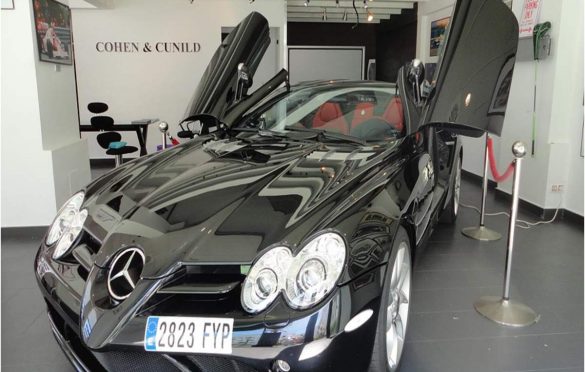
The Real Deal on Certified Pre-Owned Automobiles
Buying a used automobile may help you save money while also allowing you to drive a more opulent vehicle than you could afford to purchase new one. In addition, for individuals wanting to lease a new automobile, purchasing a used one outright may save money and remove the lease’s mileage limits. However, some individuals are hesitant to buy a vehicle with a shady history, which is why manufacturers devised the “certified pre-owned” label.
In some companies, certified pre-owned (CPO) vehicles have been evaluated and determined to be in superior working condition than their competitors. For instance, certified pre-owned cars in Kuwait are generally cherry-picked, have lesser kilometers, and are cleaner vehicles with a clean past. A prolonged manufacturer’s warranty protects them against failures and costly repairs. CPO vehicles may also undergo a multipoint examination to identify any systems or parts that need repair.
Maintain an Appropriate Level of Skepticism
CPO autos, according to dealers, are a superior option primarily due to their extended warranties, near-mint condition, and cost savings over new cars. However, according to CR’s auto experts, a standard used vehicle might be a better deal. Buying a certified pre-owned automobile is essentially buying a premium extended warranty for a sense of security against unforeseen faults.
There are other levels of certification as well. For example, although a secondhand automobile may be sold as certify, it may not back by an official certification scheme from the manufacturer. Some dealers offer third-party certificates or “certify” automobiles themselves. These kinds of CPO initiatives are fraught with dangers.
When it comes time to file a warranty claim, for example, you can lost in a paperwork knot, particularly if you seek service at a different shop or facility. Often, manufacturers require you to obtain warranty service at the original selling dealer. They may send you a piece of paper (called an “Authorization to Proceed”) before they consider providing warranty service, but even that is not always requirement for them to do so. If you didn’t get one in advance, take your vehicle and all the paperwork associated with your warranty claim to the dealer who sold you your car or truck. The law requires dealers to service vehicles under warranty, even if they are not the original selling dealer. Some higher-level managers may reject your request for assistance on a vehicle that didn’t come from them, but some will help.
You must be aware of the distinctions between the plans, and you should get complete, official paperwork from the dealer to determine what kind of guarantee you are purchasing. Furthermore, not all certificates are transferable from one owner to another. Keep this in mind when purchasing a used automobile from a private seller. 
A Better Strategy
According to auto experts, consumers searching for the greatest value should save their money and utilize our list to discover a non-certified used vehicle that is likely to dependable, rather than paying a premium for a certified use car. They may then put the money aside to cover any unexpected repairs.
Suppose a non-certified use vehicle’s original warranty is still valid. The buyer may negotiate a factory-backed extend warranty. Still, auto experts warn that this is not a wise investment in most situations. Feel free to ask a dealer for an extended warranty.
Have a reputable independent technician analyze any used automobile before purchasing. It to ensure that all systems and components are in working condition. They will identify any damage or concealed repairs. Be aware that some certified pre-own vehicles were not adequately tested or reveal conceal problems.
Always check the brakes: Examine the pedal and master cylinder reservoir for fluid leakage. When working the brakes, there should be no grinding or pulling. Take note of how far the vehicle pulls to either side when applying brakes. The exhaust system, battery, and steering should also take placed on your checklist.

Additional measures to take include: Performing a comprehensive VIN (vehicle identifying number) internet search to see if any enlightening information appears, inputting the VIN at safercar.gov to check for open recalls, and buying. A vehicle history report from Auto Check or Carfax. (While a clean history report is a helpful tool. I keep in mind that it is not guardant that the car has never been in an accident.)
Find resources online to help you guide your decisions about whether or not to purchase a new car. And also, If so, what type of vehicle would best suit to meeting all your needs! Remember, there’s no wrong answer – just think about what is the best solution for you. It is all about your needs and wants. Once you figure out precisely what those are, then choosing the right car becomes easier.


